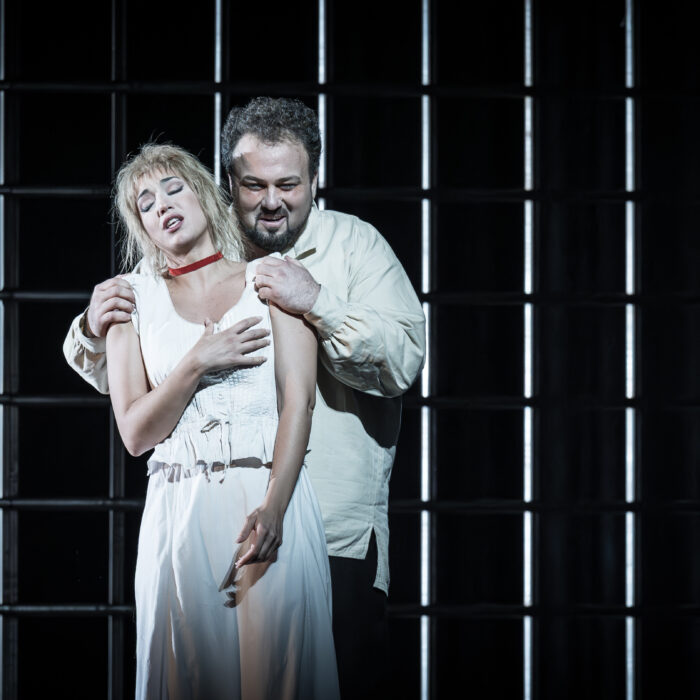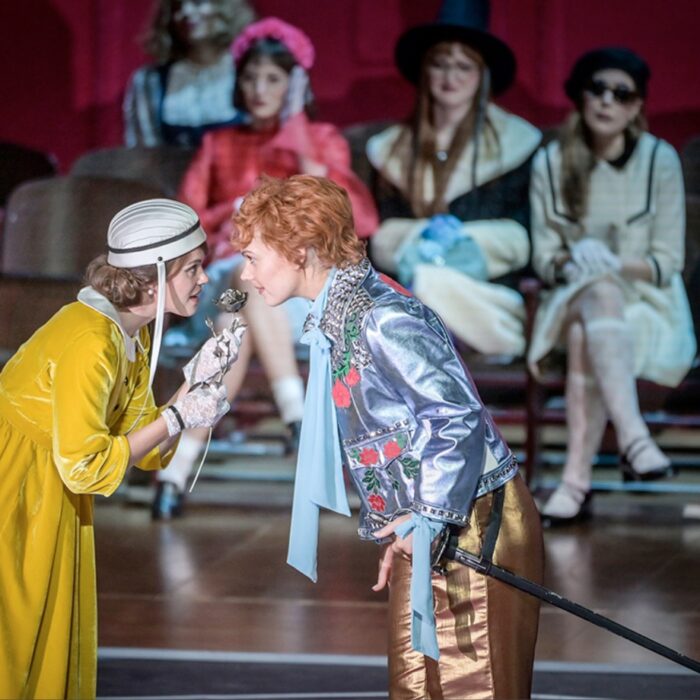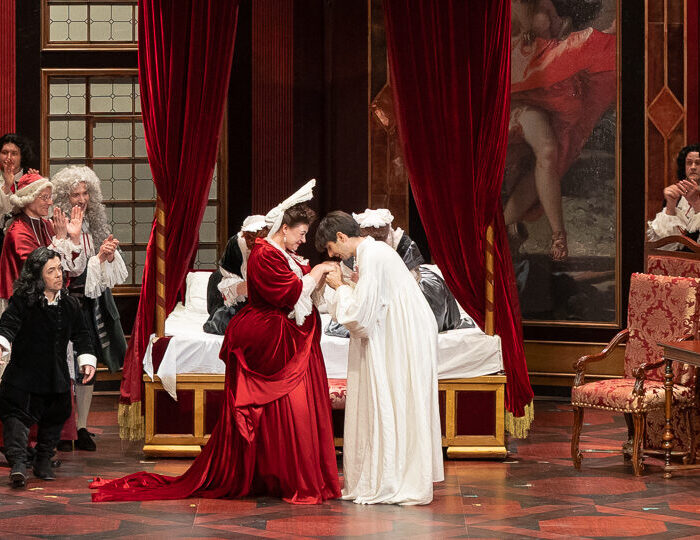
Vienna Philharmonic 2017-18 Review: Elina Garanca Takes Us On A Transcendent Journey With Mahler
By Lois SilversteinWe go to Mahler for wisdom and depth and to Elina Garanca for beauty and rich interpretation.
Both were present Sunday morning at the Wiener Konzerthaus. The Wiener Philharmoniker, conducted by the dynamic Venezuelan conductor, Raphael Payare, book-ended Mahler’s “Funf Lied (Five Ruckert Songs),” plus one song from “Der Knaben Wunderhorn,” with Beethoven’s Leonore Overture and Bartok’s Concerto For Orchestra.
It was sublime.
First the Orchestra
The Wiener Philharmonike justly deserves its reputation as one of the world’s great orchestra. Precision was the keynote, every bar exact and unified. Superb dynamics were brought forth by Payare’s immediate and consistent balletic energy. Never did it flag. Beethoven’s well-known piece was crisp and clear, as moving as if it were just composed. The Bartok Concerto was also sumptuous, its textural richness, the various instrumental motifs side by side, the rhythmic variety, the sheer color, let alone the fourth movement’s glorious melodic line, kept us alert to every single sound.
And then there was Garanca. The whole concert brought us through a quasi-ocean of sound.
From Light to Dark
Garanca sang Ruckert’s poems set to Mahler’s exquisite music. They are not a cycle, but are called a “collection.” In other words, they are a lyric expression of playful and plaintive moods of love and art and life rather than a narrative progression and sometimes are sung with piano alone rather than orchestra. Singers often adjust the order to suit their interpretation. Garanca proceeded from the lightest and most deft to the darkest variation of tone and intensity.
She opened with a playful warning, “Blicke mir nicht in die leider… Meine Augen schlag’ich nieder (Look not into my songs. I must lower my eyes. Your curiosity is a betrayal). It was a complex thought for one lover-artist to send to a would-be beloved. Like bees in a hive, an artist in his work doesn’t like to be observed. Creating art is private, not to be shared until compete. In other words, don’t watch, don’t keep your eyes on me.
Second came, “Ich atmet’ einen linden Duft! (I breathed…a gentle fragrance in the room, where the linden stood placed there by a special hand…von lieber hand).” Tender, quiet, and appreciative, Garanca’s voice caressed the way a hand might, the way genuine love does. A thin smile came across her lips as she completed the song, as if in recognition.
Here, instead of a tease, she surrendered a sweet, kind posey. Her eyes did not twinkle, but looked on her courtier with gentleness. “How lovely was the fragrance of linden.”
The centerpiece of Garanca’s song order was “Um Mitternacht,” the song of the poet enduring insomnia. It became a quasi-turning point as the mood darkened.
It was as if the bell began to toll. An eleven minute song, in which Garanca stood present and thoughtful. Garanca built on each repetition so that we were pulled down and eventually submerged. At the piece’s conclusion, Garanca stood absolutely still, all of her rich and extensive voice enwrapped in that solemn stance.
By the time Garanca approached the fifth and final song of the sequence, the artist’s retreat from the world became as if sanctified. We were primed for something even more distinctive. Garanca led us well, her voice seeming to open more than it ever had before, but simultaneously expanding and deepening. It was as if she had it hidden away and only now was ready to give us a peek; like Mahler, the maestro, and Ruckert, the poet, who inspired such exquisite music, she led us through a door of the unknown, and with grace. Fear? No. Solemnity and majesty.
Transcending Further
“Urleit” followed from “Der Knaben Wunderhorn,” the earlier Mahler song cycle. Here it stood as an apt conclusion to the last Ruckert songs, amplifying the withdrawal from the world Garanca sang about – one English translation has it as “primeval light” – and she sang it with both tender and substantive control; and so we were brought beyond even her extensive range into a dark and more voluptuous sound – more fullness and richness than she had shown in her many performances over the years. Here she sang something larger, deeper, at once unknown and known, something that opens as a wave does, large and full and beyond even the unknown.
Garanca seemed to exert no effort here despite the extensiveness of the score and the message. She breathed in and then emitted through the resonant sound almost a canny wisdom. She became a guide, suggesting more than musical reality. Was that one of the reasons Mahler included this song in the 2nd, the Resurrection Symphony?
These songs of Mahler, as Garanca sang them, highlighted his unique genius: the fresh pairing of instrument and voice; the surprise appearance of solo instrument – horn, bassoon; the contrast of piano and forte. Each contributed the pairing of longing and listening, provoking and acceptance, which seemed to enwrap us with arms or wings. Garanca sang with steady constancy, firm presence. Then came that silence. Yes, the audience did applaud between the five Ruckert songs and “Urlicht,” although I suspect that was not what the performers intended. But at the climax, there were several blissful seconds of silence. It was as if to say – I may be taken from the world but here, I leave this with you, this speck, this drop of ocean and sky. In that pause, Garanca, and Mahler behind her, offered us what seemed divine. We gladly accepted.


